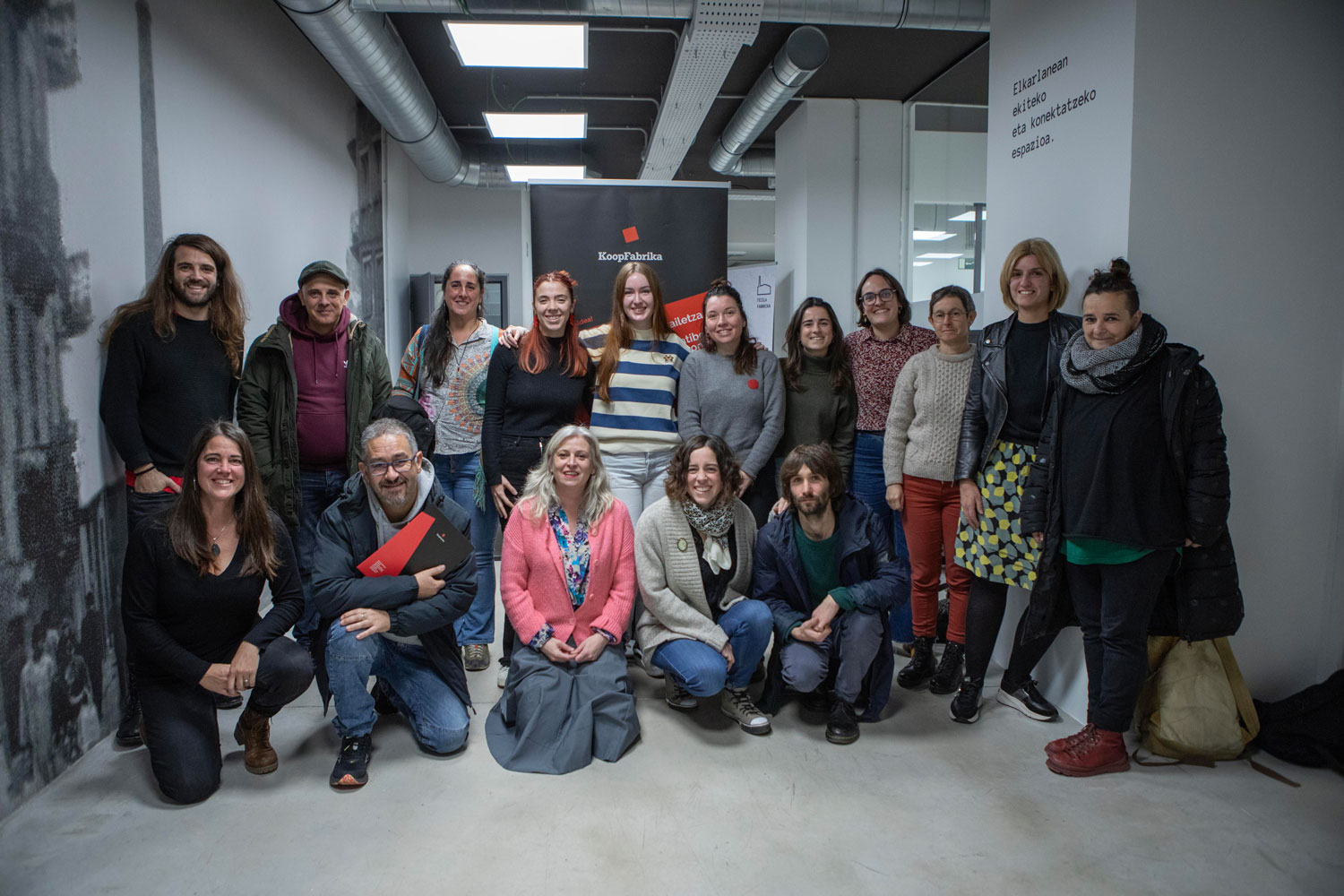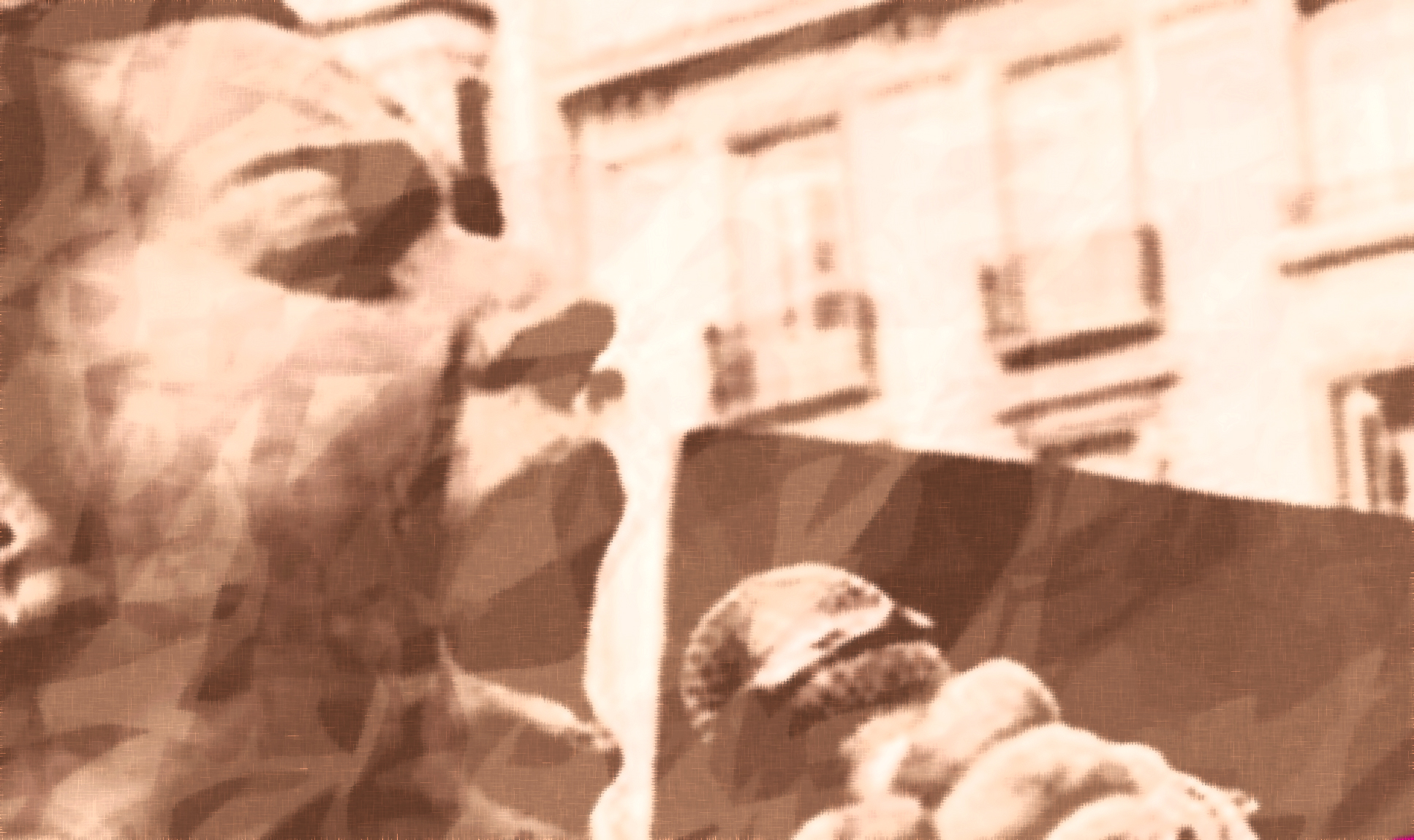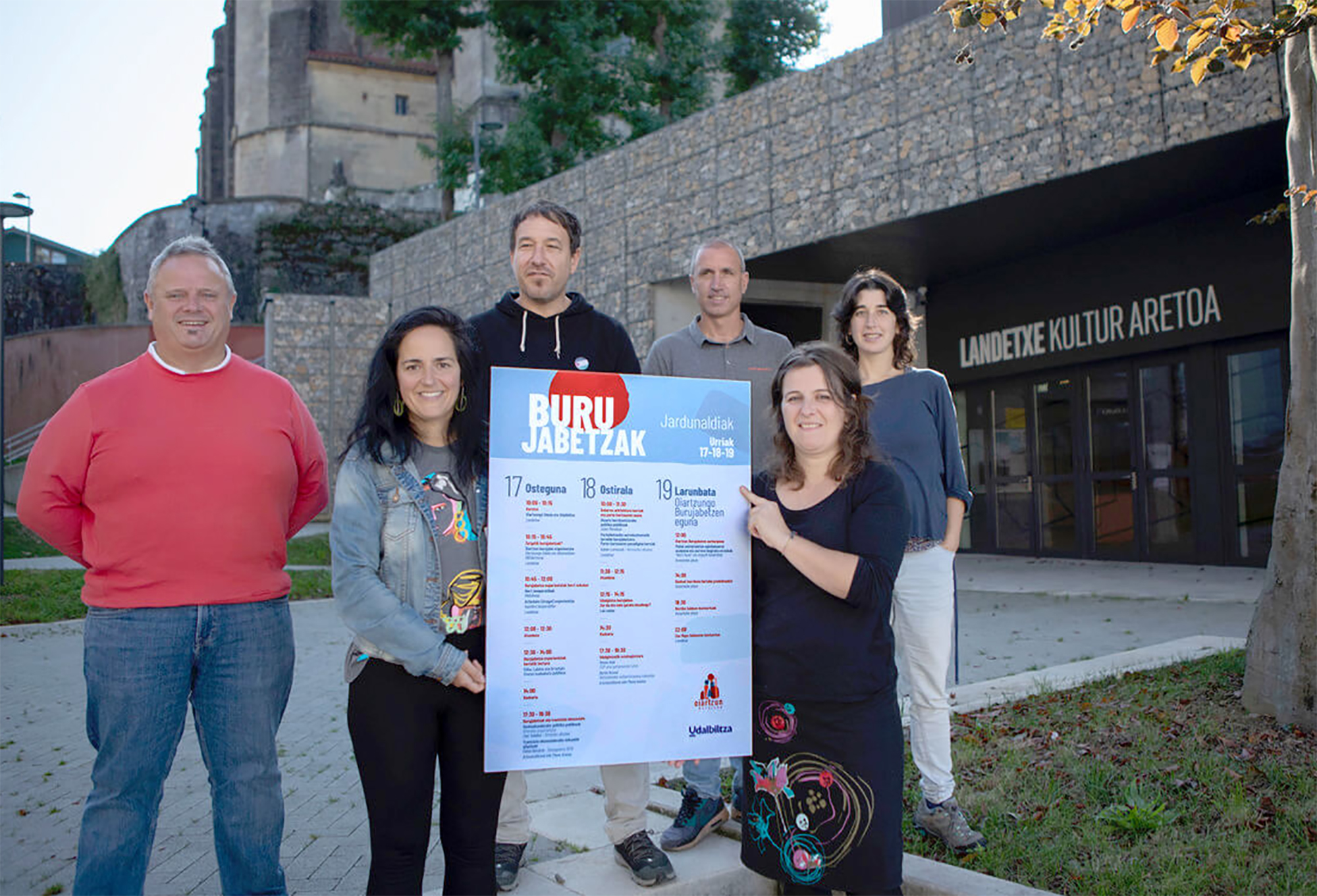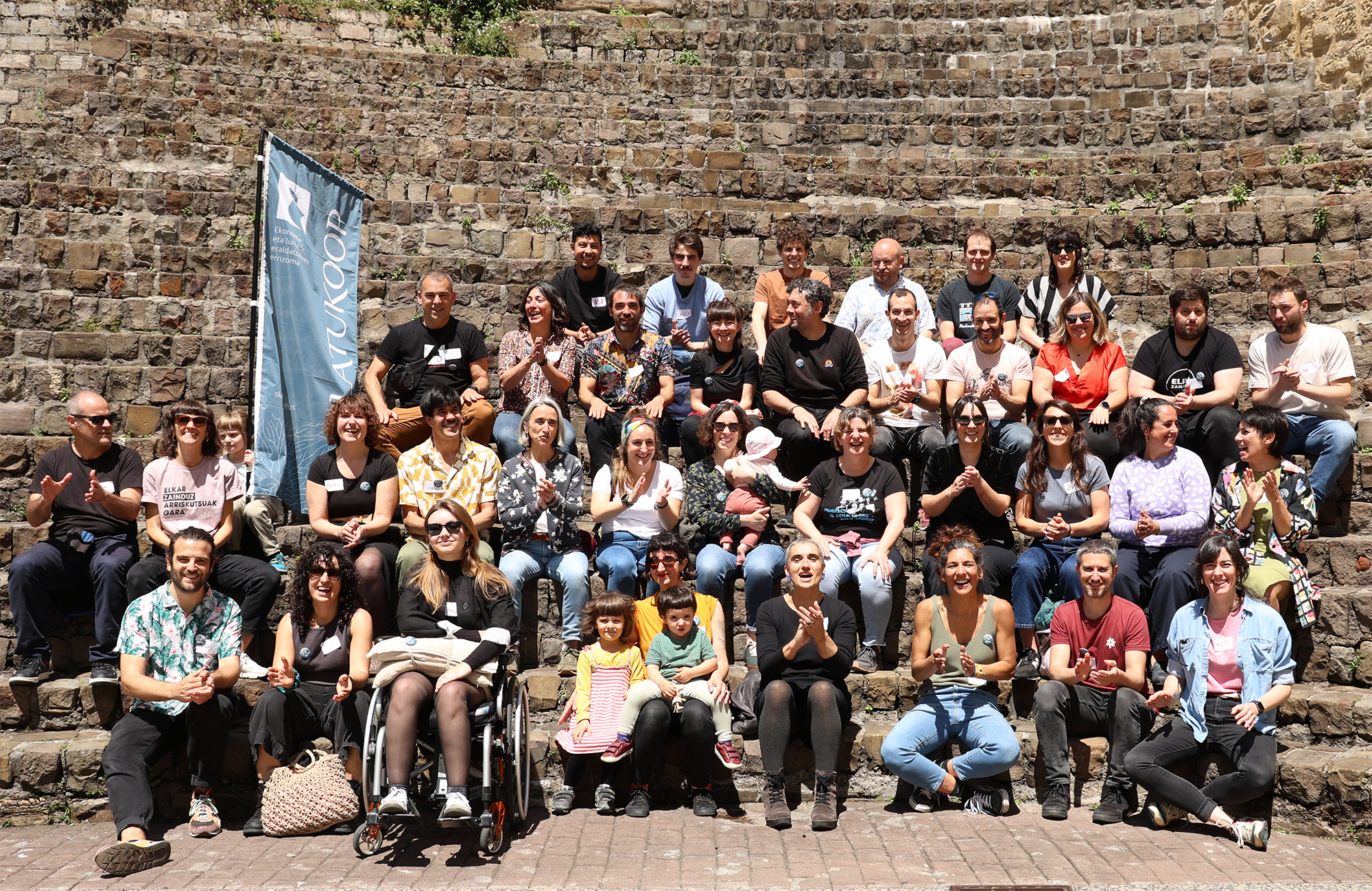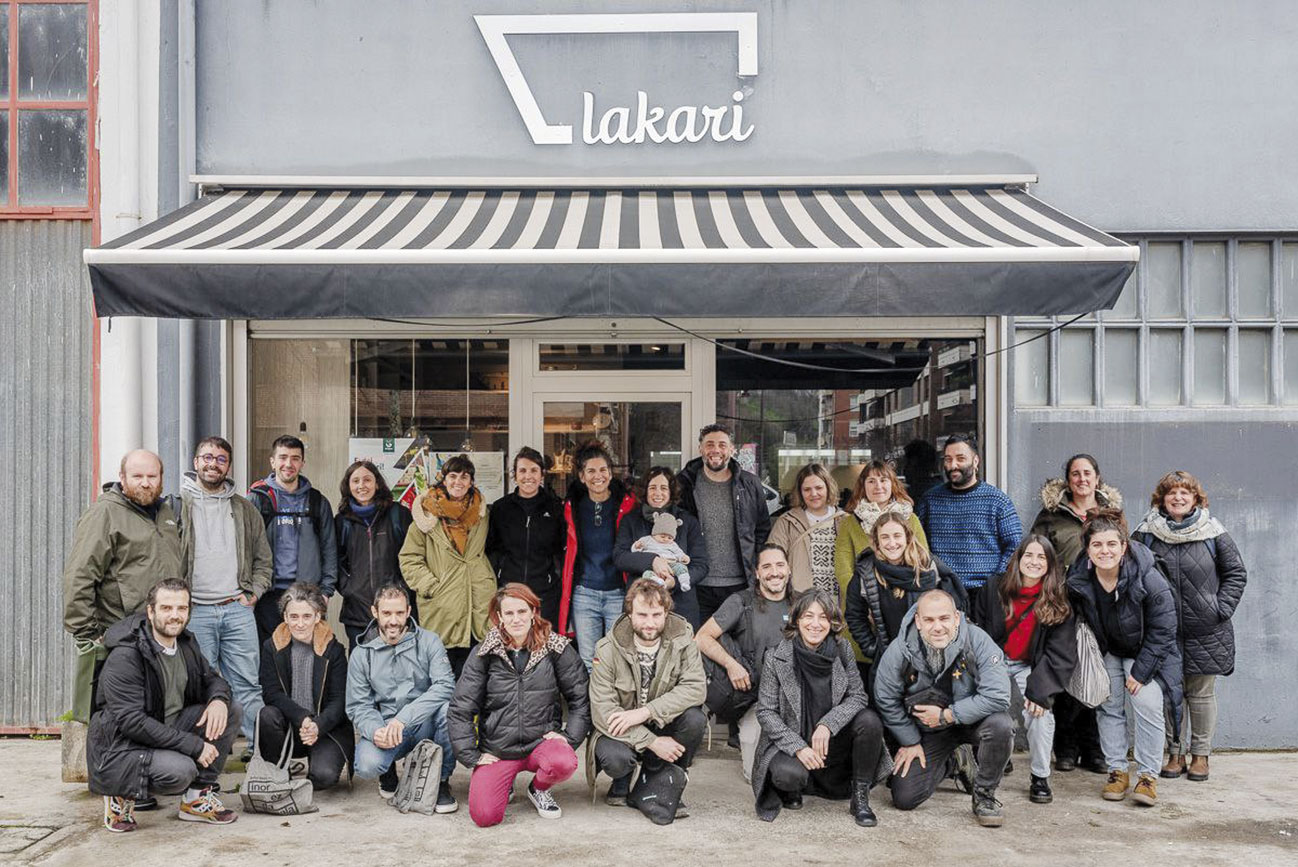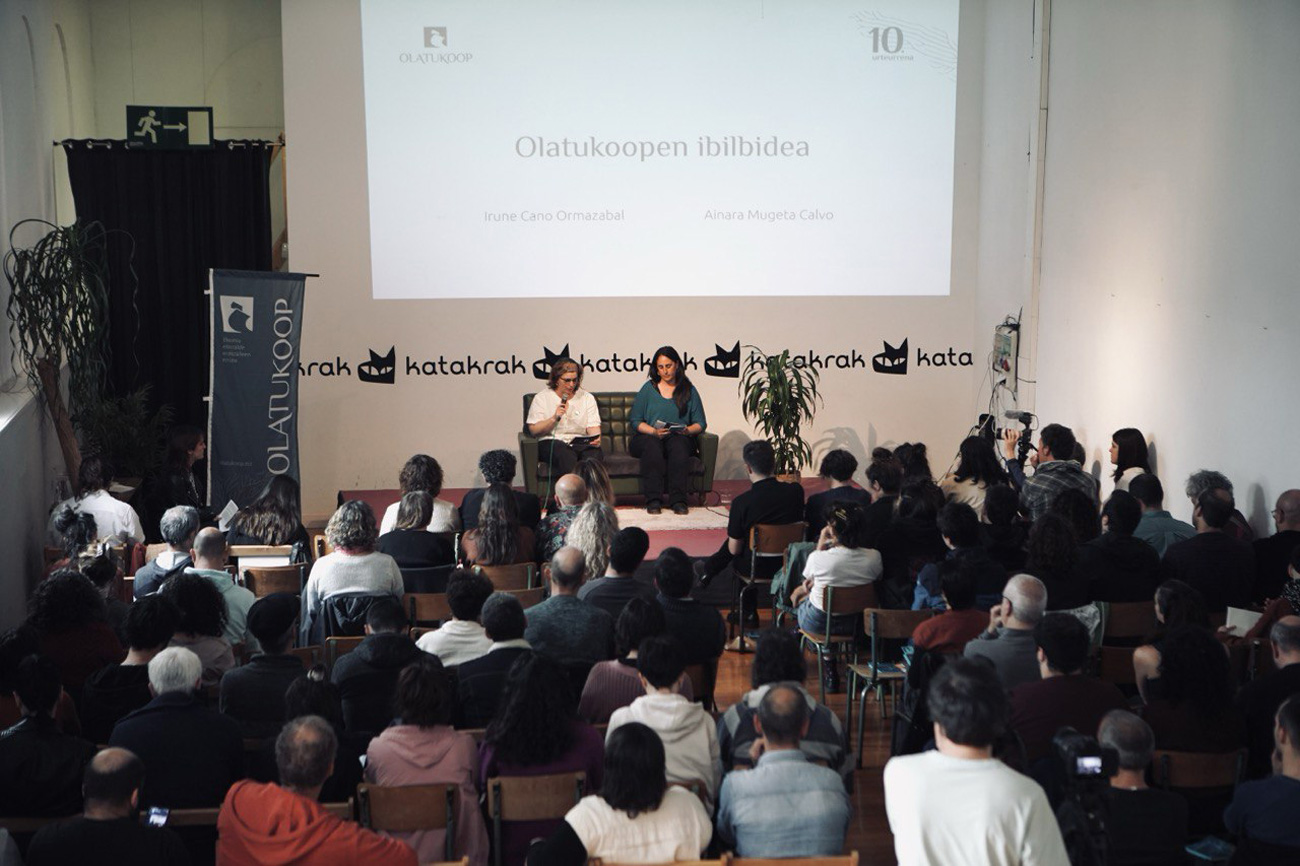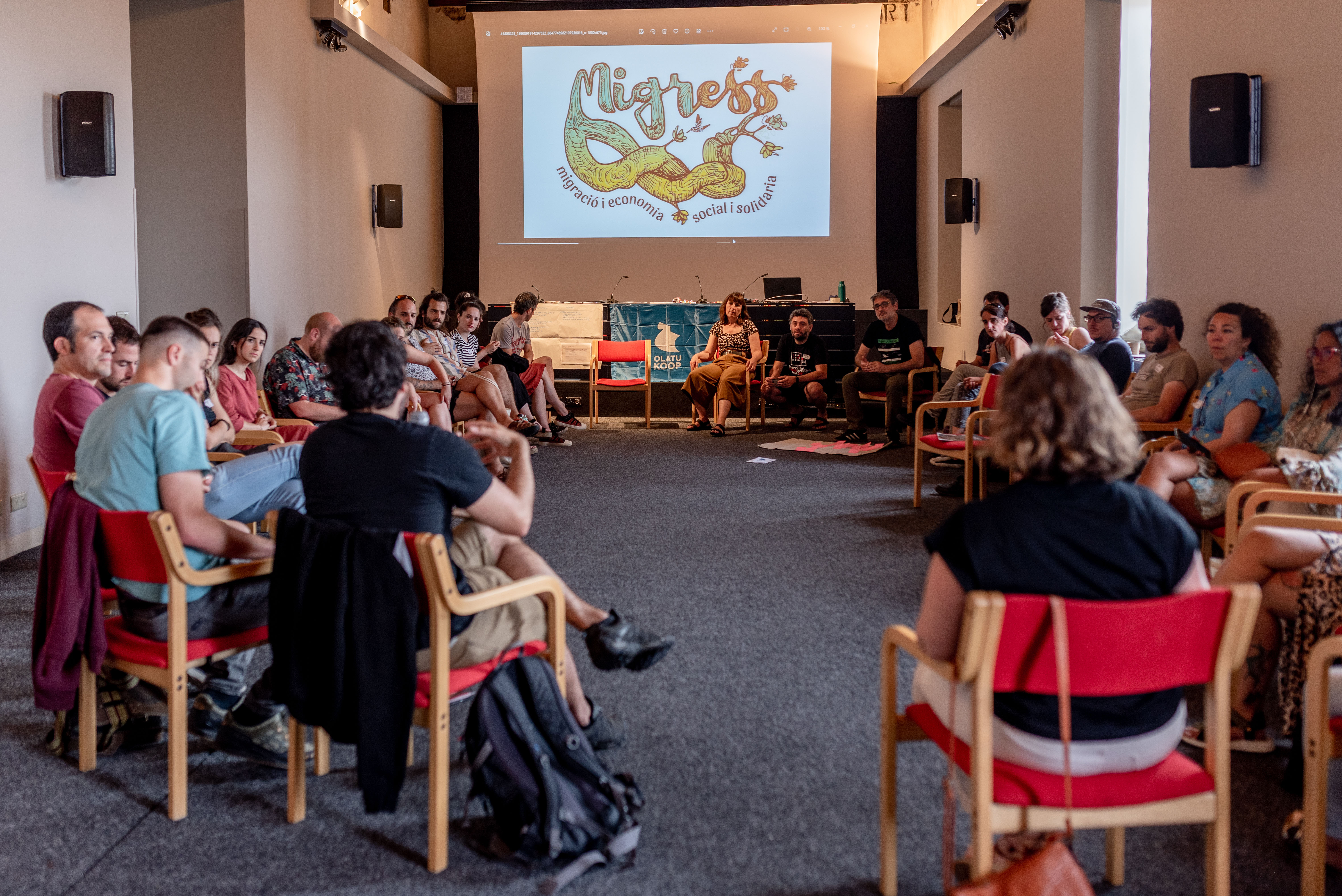“The employment to change the pit system in which we live is the biggest weapon we have.”
- On March 5, the Association for Social Action HUN – HerriUni and Andoni Esparza Gallastegi organized a conference in Astra de Gernika. There, Julia Itoiz offered a conference: “I spent four years writing his book with Antonio at home: Beste experience bat – Jorge Oteiza-to publishere ez den liburu. It was Sparza’s story, but he couldn’t write it.” Remember the day they did in Marcilla: “We saw the territory of his project, which was abandoned. In a thatched silo there was an office table and there was a drawer that we opened and a record sheet signed by Arizmendiarreta. I thought, “How is it possible that such an important part of the history of Euskal Herria is in the barn of Marcilla?” He explained that knowing the past serves us to face the future: today, on the threshold of the transition that will force at the end of the fuels, as at the time when Funcor and MCC were born, we will have to respond to the challenges of the time. Jabier Lertxundi also offered a conference on this day. The chronicle is reproduced in this article.

Julia Itoiz explained that employment is “one of the greatest social energies”: “We spend more time in employment, it generates a life, it generates some uses (for example, I go by car to work, or work with a lot of people..) and it generates some consumption: maybe I have little work but it gives me a lot of money, and that is what I waste in the mall... I think that society and jobs feed each other way: they make each other.
Democratic relations and security for life
“In Funcor they managed to build democratic relations during the dictatorship. And at Funcor, they created something very important that gives us employment: safety for life. At a time when the current health system did not exist. She awarded scholarships to study. And with the benefits of the cooperative, they promoted culture, and that's very important, because culture is a conception of the world and it has a root, and because it's harder to manipulate the entrenched community. And above all because culture is a privileged tool to change things, through education and the emotions it provokes,” Itoiz said.
Jabier Lertxundi worked before Itoiz on the differences in the cooperatives of Funcorrie and MCC, this day.
But Itoiz said that both Funcor and Mondragon were equal in one thing: “They were fossilized industrial structures based on fossil fuels. Fossil fuels came very cheap and mobilized the peasant society of the time to become the current digital Euskadi. Geologically, it was a prime time in the history of mankind, in which cheap, turbid and powerful energy could be used for the development of society. It is a pity that what was realized about this design was a Franco state, which opened a vision of the world, of the industry and of the company.”
With the end of fossil fuels, what?
“A friend geologist says that in the Spanish State there are three areas in danger for the purpose of fossil fuels: Barcelona, Madrid and Bizkaia – Gipuzkoa. The most industrialized. We’ve built six-story monsters on top agricultural land, an absolute nonsense,” Itoiz kicked out.
Itoiz said that giving hope to advances in science is useless: “It’s telling us a regime of postal truth that science is going to fix everything. This is a medieval superstition adapted to the age 4.0. “Science will do it,” like the gods? No, science isn't going to do, because there are things that science can't solve. Since the end of fossil fuels, it will not deliver us anything, nor science, because it is not a scientific or technological problem, but a geological problem. Neither the sun, nor the wind, nor other renewable energies will be able to replace the force that oil had: scientists say that only one in a hundred cars that we have with gasoline can be electric, because the electric one needs lithium, a very scarce material, and there will be no lithium to build as many cars as they are today with gasoline. The car of the workers disappears and the car is again what it has always been: a luxury object. As before, the car will be for the doctor and the rich people of the town. Let them not be the rich of the Oxala people, but let the car be ambulances or bring food: let them be for things that affect us all. As you can see from these examples, the only thing that can save us is intelligence and community.”
He inevitably mentioned some changes that we may know in the coming years: “We will not be able to work in a work center more than 40 minutes away, we will not be able to go shopping to the hypermarket, who will bring food (everything moves in the trucks)?” He also set another example: “People are going to go to rural areas, it’s already started with the pandemic. Navarre and Álava will arrive many Biscayan and Gipuzkoans who will not be able to live in the city”.
Although climate change is mentioned above all, he added that pollution is a serious problem: “We have very impoverished lands, toxic waters...”
“Also at the time of Funcorro it was necessary to change the model of society”
Although it was for very different reasons and characteristics, Itoiz explained that, as the people of Funcorridor lived, there is still the “need to change the model of society”: “And to change the model we have to exercise resilience. We are in a very dangerous new situation, and we need a lot of intelligence and a strong community. Only partnership will save us. We will lose it materially, yes, but we will win in the humanities. And what makes us happy, what do we have, or are we? Maybe we will be more people.”
Itoiz recalled that employment is the “social energy” essential for change: “The employment to change the pit system in which we live is the biggest weapon we have. The need to switch to something non-targeted is the largest job niche we have. And employment is the most productive source of security for life.”
He said that the model should be reinvented, with the following conditions: “Let it not be centralist, oversized and also hierarchized”. He explained that the hierarchy was more “upright” than cooperation: “When we cooperate, the intelligences increase and the structure is smarter. When you think it's unique, and it's also dumb because it's someone's son or because it's someone from OPUS or party -- it's also doubling nonsense. When a lot of people think, the fool can also have an idea that at one point is great. At this time, we need intelligence and community, and that's the best thing we can do: bring our intelligences together."
“We cannot afford sadness”
“Above all, we feel vital insecurity. The future is not clear,” said Itoiz, and “we have the problem with fascism, which feeds on vital insecurity. The Vox and the new eofaxisms are learning to communicate better than the left, as they use a language that adapts better to the current situation. From fear, from insecurity, they're talking, and the left isn't talking about this. You have to go left firmly stating that “there is an opportunity, there is security for life.”
To analyze reality, along with scientific analysis, stated that social analysis and ethics are necessary: “Because no one can be left out, ecofeminism cannot be accepted. From this scientific analysis, we have to create a vision, a shared project. Where do we want to go? We have to reach a safe society, that we will have to eat, that in winter we will be warm, that people can continue learning... That meets the vital needs. Is that the goal and how do we have to do it? It exists without fossil fuels. And that changes everything, because 89 percent of our society is made out of fossil fuel."
“The biggest obstacle to changing the system is us,” Itoiz continued: “Because Geron is also fossilists. We're also individualistic. And the biggest obstacle, in my opinion, is the Left, because we are adapted to the Phosilist system and we also believe that we are not that way, that we are outside of us.”
Despite the obstacles, “future generations need to be active on this issue,” Itoiz said: “We cannot afford sadness. Sadness is reactionary. The people of the future need us optimistic, convinced that we can do it. There is no more. We need hope, that another world is possible and that we can achieve faith.”
He repeated that the strategy to reach the society of another model is employment, “because it is the greatest social energy: “What better job than they tried to get a day at Funcor? We are lucky with Funcorro, first of all, because this model is collected through the direct testimony of its manager. It's already registered. And it gives a lot of clues, among other things, that they were wrong in some things, but they were right in many others. The people of Funcor and their projects are a reference in the path that we have to travel: the union of working people, the belief that another world is possible and the use of knowledge. And two current vectors should be added to the employment that we are going to develop: working in a network and working from sustainability and ecology.”
Budgets and the closure of annual accounts are nothing more at this time, from the domestic economy to most of the socio-economic spaces that we share. Large companies have begun to extract calculators and implement major plans for 2025. Small and medium-sized institutions and... [+]
One of the major projects developed by Olatukoop with other actors is KoopFabrika, a programme created in 2017 with the aim of boosting social entrepreneurship and which is currently underway.
Initially, the first idea was that the cooperatives and agents that gathered around... [+]









